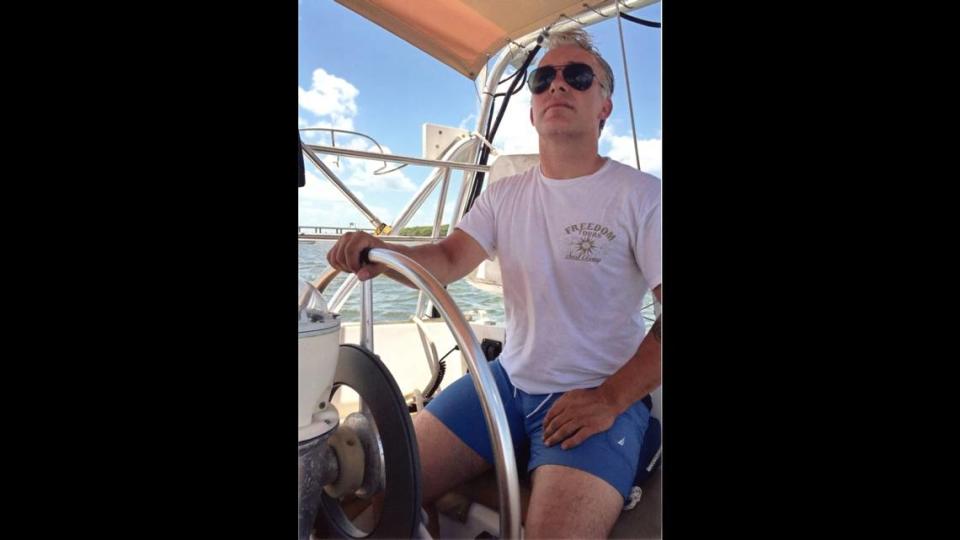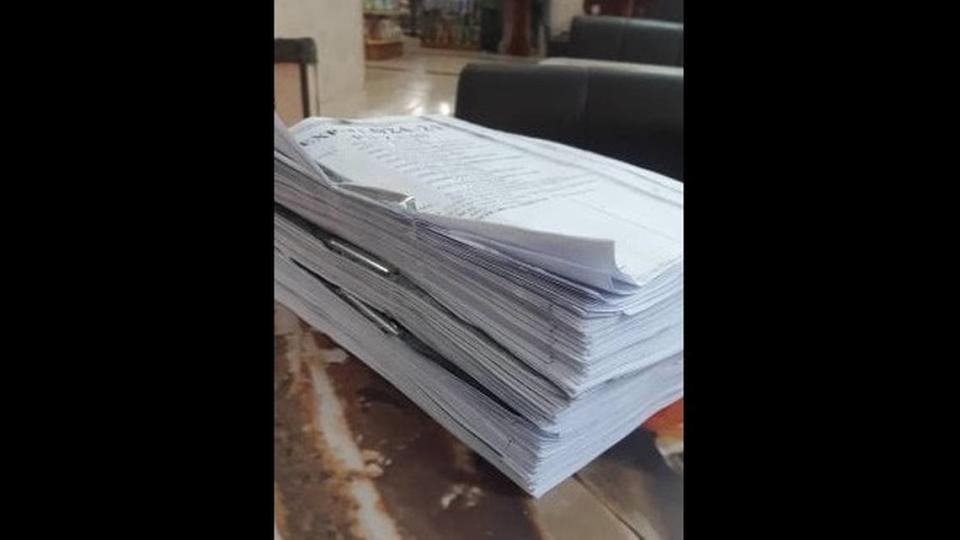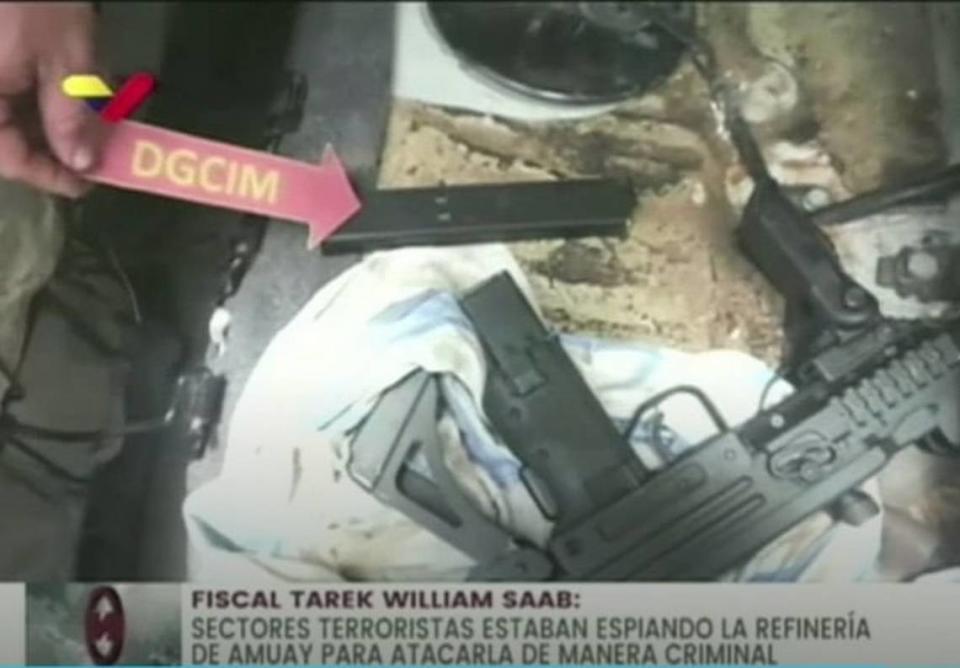Advocates for American held in Venezuela allege torture, extortion, prosecutorial lies
Lawyers in Venezuela representing jailed American Matthew John Heath are offering an alternative narrative to the regime accusations that the retired U.S. Marine was caught with explosives and was a spy.
Repeating what is alleged in documents said to have been quietly filed to a United Nations Special Rapporteur for human rights in Geneva, Heath’s legal team was set to argue Thursday that he had been held against his will in the lawless Guajira region that straddles the Colombia-Venezuela border, before his later detention in Venezuela. Regardless, they insisted, he was anything but a spy.
That March 22, 2021, report to the U.N. — obtained exclusively by the Miami Herald, el Nuevo Herald and the McClatchy Washington Bureau — alleges that during the first days of detention by the government of Venezuela and over subsequent days Heath was tortured. This allegedly included beatings, a gun to his head, electric shocks administered to most of his body, asphyxiation with plastic bags over his head, dousings with ice-cold water and rape threats.

The narrative emerging from Heath’s family and legal team is that Heath was planning to visit friends on a coastal passage by boat to Aruba, a 19-mile-long former Dutch island that is just 15 miles off of Venezuela’s northwest coast. How he went from the boat to the volatile region remains unclear. His family alleges he was kidnapped. On a Caracas internet radio show Wednesday, his lawyer, Guillermo Heredia, described it as an extortion scheme.
Heath and three Venezuelans who were arrested with him in September were scheduled for a court hearing Thursday afternoon but it was postponed at the last minute, apparently due to logistical problems with the defendants being held in different prisons.
Facts on all sides of the case are hard to independently verify. Heredia had planned to attack in court the initial police reports and photos, which he said show Heath and three Venezuelan men paraded before local media for having a large amount of U.S. dollars on them. They were stopped apparently on Sept. 8, a police report was filed on Sept. 9, and Heath first appeared in Venezuelan news reports on Sept. 10.
Then five days after Heath’s initial media appearance locally, Attorney General Tarek William Saab appeared on national TV saying a CIA plot had been foiled and that Heath was a spy who had taken sensitive photos, had rocket launchers in his trunk and high-powered rifles. They showed the arsenal on TV broadcasts, and alleged he had an encrypted satellite phone.
But late Wednesday Heredia said Heath was detained at a roadblock only because the National Guard soldiers wanted to confiscate his satellite phone.
“The claim that there were videos and photos of oil installations is false. That does not appear anywhere in the case files,” Heredia said.
Purple dream
Legal documents in Venezuela — seen by the reporting team — show that Heredia detailed how the trunk of the Chevy Arauca, a hatchback vehicle, was too small to be closed with the rocket launchers displayed by the government. He also questioned why the initial police reports showed no weapons.
As for the satellite phone, the family insists it was the standard kind mariners use to communicate while at sea and nothing like what is described by Venezuelan authorities.
Heath, a Tennessee native and father of a 12-year-old boy, served in Iraq and Afghanistan as a decorated Marine and later as a security contract employee. His family says Heath, who turns 40 on July 8, had spent his life savings on a 25-year-old, 53-foot trawler called the Purple Dream, with the hopes of a career as a charter captain.
Initially his family said they were unaware of what he was doing in Venezuela and considered it a case of being in the wrong place at the wrong time. But now the family has offered new details to the Herald reporting team.
Through a representative, the family said it made nine payments totaling $21,650 from late March until Sept. 8, 2020, the day Heath was stopped, allegedly at a police checkpoint in Venezuela. The money is said to have been deposited into Heath’s U.S. bank account and later withdrawn via an ATM machine abroad, although exactly where is still unclear. The payments to Heath — to the purported benefit of his alleged Colombian captors or extortionists — ranged in size from $100 to $5,350.

Heath, they say, never actually told family and friends that he was being held captive or being extorted, just that he was stuck and couldn’t leave the region and needed help. The family said he was not the kind to ask for money from a family that didn’t have much, and they understood something was wrong.
Heath’s troubles actually began in Colombia. A report last October by The Associated Press detailed how he had been arrested inland in the Colombian town of Bucaramanga on March 25, 2020, and charged with possession of 39 rounds of ammunition although he did not have a gun on him. That late March timeline matches up with when the family said it began sending Heath money for the alleged extortion or kidnapping payments. Whether he was held in Colombia and if so for how long is not clear.
What is clear is that he ended up in Venezuela, where he was most assuredly detained.
Tamara Suju, a Venezuelan lawyer and human rights activist who said she submitted the report to the U.N. on March 22 about Heath’s issues, insisted that Heath was trying to get home when arrested.
“What he said in his first hearing [in February 2021] was that he had his boat anchored in Aruba and all that he wanted was to leave Venezuela after going through the experience of being kidnapped so he could go back home,” said Suju, a member of Heath’s defense team.
The family said Heath had been on a hunger strike, angry that he was unable to speak to his lawyers. This strike appears to have succeeded when he finally met with the team on Tuesday, two days before his scheduled court date. Received through an intermediary, a photo shows a huge stack of legal documents that Heredia said he received that same Tuesday.
In Heredia’s own legal documents there are copies of the photos of the initial presentation of Heath to the media, during which no weapons were shown, and photos of the trunk of the car, where no heavy weapons and no rocket launchers were initially reported found.
Suju’s report said Heath triggered the suspicions of Venezuelan soldiers at a roadblock because he carried the satellite phone, foreign currency, two notebooks and a U.S. passport.

The report to the U.N., citing the official Venezuelan documents introduced in the case file, said Heath was accompanied by two men wanted for “treason against the fatherland,” which led soldiers to reach out to Venezuelan intelligence officials.
Heath had only $20 on him, the report to the U.N. claims. The report asserts there were no explosives, weapons or a rocket launcher in their possession, despite what was stated by Venezuela’s attorney general.
During his early days of captivity in Venezuela, Heath was tortured even though he spoke little Spanish and didn’t know what his interrogators were asking, the report added.
“The intention and objective of the torture was to get the victim [Heath] to declare that he was a CIA agent and that the U.S. government was aware of his activities,” said Suju’s report.
“They placed a gun on his head in an attempt to force him, and told him that they were going to kill him if he didn’t talk,” it said.
As a retired Marine, Heath surely knew that Venezuela was in a state of conflict with the United States, which by then had offered a $15 million reward for the capture of the country’s leader, President Nicolás Maduro. The Trump administration took the unusual step of claiming that lawmaker Juan Guaidó was the constitutional leader of Venezuela and stopped recognizing the Maduro government, which nonetheless appears firmly in command.
Report to Rapporteur by Casey Frank on Scribd
Heath’s arrest came four months after a botched Venezuelan coup in May 2020, where a band of insurgents arriving by boat from Colombia were slaughtered by waiting Venezuelan troops as they reached the shoreline, apparently betrayed from within. Two ex-Green Berets working with Florida security firm Silvercorp USA were captured in the foiled attempt and later sentenced to 20 years in prison.
At Trump Doral Red
There is no known connection between Heath and that bungled coup. Silvercorp USA helped train in Colombia’s Guajira the would-be liberators. An investigation by the Herald, el Nuevo Herald and the McClatchy Washington Bureau showed at least some in the Trump administration had prior knowledge of the coup effort, and some planning even happened on one of the Trump National Doral golf courses, the Red Course west of Miami.
The Biden administration is closely monitoring Heath’s case, including the developments in Venezuela on Thursday, but would not comment on allegations of his torture, citing privacy concerns.
“The welfare and safety of U.S. citizens abroad is one of the highest priorities of the Department of State,” a senior administration official said.
New Mexico Gov. Bill Richardson, a former U.N. ambassador who now privately negotiates for the release of Americans held abroad, including others in Venezuela, declined to comment through a spokesperson about the Heath predicament.
A spokesperson for the U.N.’s Geneva-based Office of the High Commissioner on Human Rights confirmed the office is aware of Heath’s proceedings.
“We are aware of the case and we are following it,” the spokesperson said in a statement, noting that any one of 56 Special Rapporteurs may have Suju’s complaint. “However, we don’t comment on individual cases without express consent from the source.”

